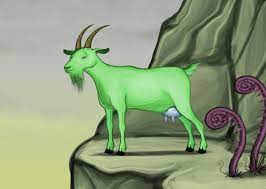Horses' needs don't scale down very well, which would make them a liability for a small colony. A larger one could get more use out of them and better mitigate the problems.
Problem one is getting there. A spaceship is not a very good environment for a horse; they need space to run and exercise, and they need a lot of food and water which adds to your supply needs. The bigger the colony ship, the easier it is to find large open spaces for your livestock. You also need to consider what g-forces a horse can survive (I can't really imagine one being strapped into an acceleration couch...) and whether that will fit with your launch vehicle. Rovers, in contrast, pack up nicely and will handily take any g-forces your colonists will.
Problem two is that horses require a lot of specialized care and, worse, specialists that don't really overlap with your existing needs. If your rovers are electrically powered, for instance, then the batteries and motors they use run on the same principles as all the other electrical equipment in your colony. Your motor pool mechanics probably have enough know-how to swap in and fix a balky AC unit or repair a generator. On the other hand, if you keep horses, those skills are less transferable to other situations that come up. Maybe your horse handlers can keep other livestock, but that's about it. Again, in a larger population this isn't a big deal. A population of a million can afford to specialize in tons of little fields. A population of a thousand can't; each specialist is a potential pain point if that person is injured or sick.
Problem three is, where are you planning to go? A small colony doesn't really need a lot of transportation. As you describe it, they only have one town, which is presumably fairly compact. You don't need sprawling suburbs or huge factory districts. Most of the settlers' lives probably take place in easy walking distance. If your trips are fewer and further between, a rover you can park in a garage and forget about has a big advantage over a horse that still needs care and feeding whether or not you go anywhere.
As an aside, have you considered muscle power? A boat or a bicycle has far fewer moving parts than a rover, needs less maintenance than either, and is easy on your fuel supply too. And they require very little specialized know-how. They're not suited for every terrain but the nice thing about being the first colonists is, you can pretty much take your pick.

